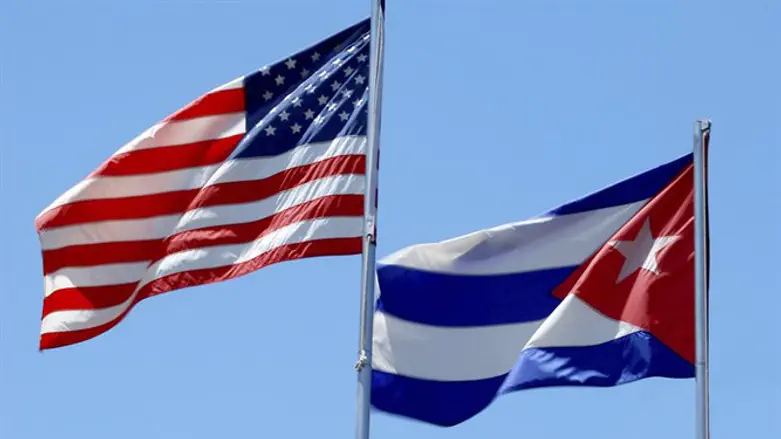
U.S. President Donald Trump on Friday will announce a significant rollback of former President Barack Obama’s accord with Cuba, Politico reported on Thursday.
According to the website, which obtained a draft version of the directive, Trump will ban tourist travel to the island and institute a broad prohibition on financial transactions with companies significantly controlled by the Cuban government’s military.
The administration says its goal is to put an end to business transactions that financially benefit the Castro regime while the Cuban people get little in return.
“My administration’s policy will be guided by key U.S. national security interests and solidarity with the Cuban people,” the draft of the five-point, eight-page Presidential Policy Directive reads, according to Politico.
“I will seek to promote a stable, prosperous, and free country for the Cuban people. To that end, we must ensure that U.S. funds are not channeled to a regime that has failed to meet the most basic requirements of a free and just society,” it adds.
Obama and Cuban President Raul Castro announced in December of 2014 that ties between the countries would be restored.
The announcement followed several steps, including the United States officially dropping Cuba from its blacklist as a state sponsor of terrorism, as well as a scheduled airline service, increased co-operation on law enforcement and environmental protection.
The moves culminated in Obama visiting the island last year, and later naming a new ambassador to Cuba.
“The policy the Trump administration is announcing regarding Cuba based on President Trump’s core conviction that what the Cuban exile community is asking for is right and just,” the White House said in a written statement to Politico.
“The oppressors of the Cuban people are the Cuban government who have increased repression on the island against dissidents and Ladies in White since reestablishing diplomatic relations. Prior to that, it was not clear to some if the Obama policy toward Cuba would work; today it is clear that the Obama policy toward Cuba does not,” it added.
Trump's new policy targets state officials, significantly expanding which Cuban government officials are subject to certain financial sanctions, such as being barred from having a U.S. bank account, according to Politico.
That previously included not just members of the Cuban cabinet and high-level military officers, but will also now include ministers and vice ministers, top leadership for all Cuban ministries and state agencies, the top leaders of the party-controlled labor union confederation, employees of the Ministry of the Interior (which controls the state security force), employees of the Ministry of Defense, members and employees of the national assembly (as well as members of any provincial assembly), editors of state-run media, and justices and employees of Cuba’s highest court.
Spending related to U.S. government operations on the island, such as the Guantanamo Bay Naval Station and the diplomatic mission on the island, will be allowed, as well as spending that supports programs aimed at building democracy in Cuba or further U.S. interests and certain transactions with airports and seaports dealing with travel and trade, such as docking and landing fees.
Purchasing visas, too, will be permitted for those who are allowed to travel to Cuba. Transactions related to the sale of agricultural commodities, medicine and medical devices— exceptions to the embargo that have already been carved out in U.S. law—will be permitted.
The changes won’t be a complete roll back of the normalization of relations pursued under the Obama administration. The U.S. embassy in Havana will remain open as an embassy, as opposed to its precursor, the “U.S. Interests Section,” the document says.